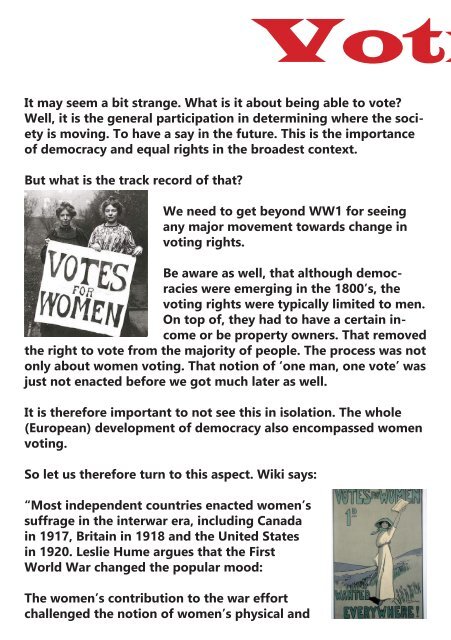Hola MaHigh-School - August 2017
You also want an ePaper? Increase the reach of your titles
YUMPU automatically turns print PDFs into web optimized ePapers that Google loves.
Voti<br />
It may seem a bit strange. What is it about being able to vote?<br />
Well, it is the general participation in determining where the society<br />
is moving. To have a say in the future. This is the importance<br />
of democracy and equal rights in the broadest context.<br />
But what is the track record of that?<br />
We need to get beyond WW1 for seeing<br />
any major movement towards change in<br />
voting rights.<br />
Be aware as well, that although democracies<br />
were emerging in the 1800’s, the<br />
voting rights were typically limited to men.<br />
On top of, they had to have a certain income<br />
or be property owners. That removed<br />
the right to vote from the majority of people. The process was not<br />
only about women voting. That notion of ‘one man, one vote’ was<br />
just not enacted before we got much later as well.<br />
It is therefore important to not see this in isolation. The whole<br />
(European) development of democracy also encompassed women<br />
voting.<br />
So let us therefore turn to this aspect. Wiki says:<br />
“Most independent countries enacted women’s<br />
suffrage in the interwar era, including Canada<br />
in 1917, Britain in 1918 and the United States<br />
in 1920. Leslie Hume argues that the First<br />
World War changed the popular mood:<br />
The women’s contribution to the war effort<br />
challenged the notion of women’s physical and

















